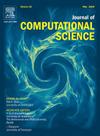Modeling and simulation of Fuzzy-rule based WBAN using multi-level fuzzy colored petri-nets and reinforcement learning
IF 3.1
3区 计算机科学
Q2 COMPUTER SCIENCE, INTERDISCIPLINARY APPLICATIONS
引用次数: 0
Abstract
By developing IoTs (Internet of Things), a new concept is arising in WBANs (Wireless Body Area Networks), called IoBs (Internet of Bodies). WBANs are the safety-critical devices that use rule-based knowledge with fuzzy variables for monitoring patients. There are two issues with the knowledgebase: (1) appropriate knowledge representation and inference and (2) handling the situations for which there is no rule in the knowledgebase. In this paper, for the first issue we present MFCPN (Multi-level Fuzzy Colored Petri-nets) and for the second one we present a RL (Reinforcement Learning) mechanism for decision making based on the past device’s feedback to the environment. Through a few scenarios and two datasets, the proposed approach has been applied to pacemakers to show the approach's effectiveness. The comparison between decision making by our approach and two real datasets indicates the proposed approach has 79.3 % accuracy.
利用多级模糊彩色 petri 网和强化学习对基于模糊规则的 WBAN 进行建模和仿真
随着物联网(IoTs)的发展,WBANs(无线体域网)中出现了一个新概念,即 IoBs(人体互联网)。WBANs 是一种安全关键型设备,使用基于规则的知识和模糊变量来监控病人。知识库有两个问题:(1)适当的知识表示和推理;(2)处理知识库中没有规则的情况。在本文中,针对第一个问题,我们提出了 MFCPN(多层次模糊彩色 Petri 网);针对第二个问题,我们提出了一种 RL(强化学习)机制,用于根据过去设备对环境的反馈做出决策。通过一些场景和两个数据集,我们将提出的方法应用于心脏起搏器,以展示该方法的有效性。我们的方法与两个真实数据集的决策比较表明,我们提出的方法具有 79.3% 的准确率。
本文章由计算机程序翻译,如有差异,请以英文原文为准。
求助全文
约1分钟内获得全文
求助全文
来源期刊

Journal of Computational Science
COMPUTER SCIENCE, INTERDISCIPLINARY APPLICATIONS-COMPUTER SCIENCE, THEORY & METHODS
CiteScore
5.50
自引率
3.00%
发文量
227
审稿时长
41 days
期刊介绍:
Computational Science is a rapidly growing multi- and interdisciplinary field that uses advanced computing and data analysis to understand and solve complex problems. It has reached a level of predictive capability that now firmly complements the traditional pillars of experimentation and theory.
The recent advances in experimental techniques such as detectors, on-line sensor networks and high-resolution imaging techniques, have opened up new windows into physical and biological processes at many levels of detail. The resulting data explosion allows for detailed data driven modeling and simulation.
This new discipline in science combines computational thinking, modern computational methods, devices and collateral technologies to address problems far beyond the scope of traditional numerical methods.
Computational science typically unifies three distinct elements:
• Modeling, Algorithms and Simulations (e.g. numerical and non-numerical, discrete and continuous);
• Software developed to solve science (e.g., biological, physical, and social), engineering, medicine, and humanities problems;
• Computer and information science that develops and optimizes the advanced system hardware, software, networking, and data management components (e.g. problem solving environments).
 求助内容:
求助内容: 应助结果提醒方式:
应助结果提醒方式:


